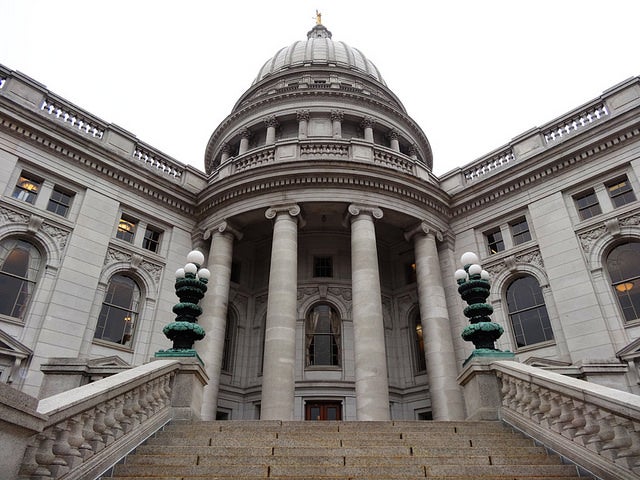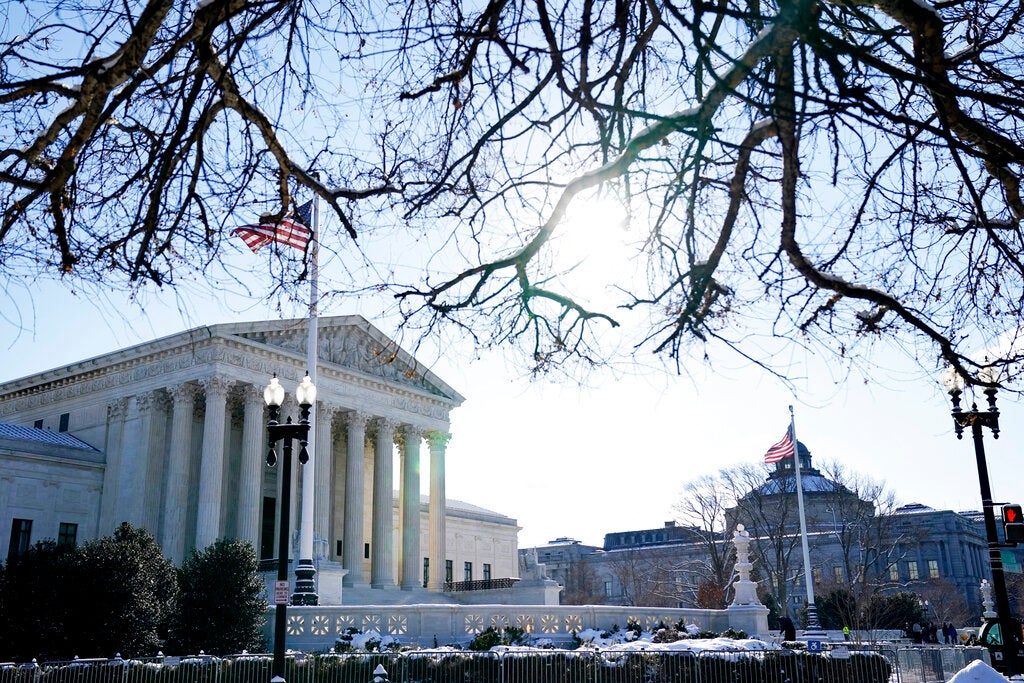Republican lawmakers in Wisconsin have revived a plan that would limit the power of state agencies to write some environmental and workplace regulations.
The so-called REINS Act would require legislative approval for any agency rule that would cost businesses or taxpayers more than $10 million.
State agencies write rules that cover everything from pollution standards for factories to workplace safety requirements.
Stay informed on the latest news
Sign up for WPR’s email newsletter.
Supporters of the proposal say it will provide needed oversight to government and create a more business-friendly regulatory climate in Wisconsin.
“This bill will ensure that officials elected by Wisconsin citizens are able to hold state agencies accountable and have the necessary oversight over rules that impact citizens and businesses in all corners of our state,” said Rep. Adam Neylon, R-Pewaukee, one of the bill’s sponsors, said during a public hearing Wednesday.
In addition to instituting the $10 million cap, the bill would allow a legislative committee to request a public hearing on a rule earlier in the approval process, allowing input from citizens and industry before the agency drafts projections related to its economic impact.
The bill would also give the committee the power to request an economic analysis of the bill from an organization outside state government.
“It’s important to have that independent economic analysis tool,” Neylon said.
The initiative is supported by Americans for Prosperity, the conservative political group funded by the Koch brothers.
Congress is also considering its own version of the REINS Act, with a cap of $100 million.
Sen. Devin LeMahieu, another sponsor of the bill, cited a 2010 Wisconsin Department of Natural Resources rule on phosphorous emissions as an example of a state agency exercising too much power. The rule set stricter standards for phosphorous released by factories and wastewater treatment plants.
A 2015 economic impact analysis released by the DNR and Wisconsin Department of Administration estimated the rule would cost businesses and municipalities $708 million per year.
“This bill is to put safeguards in to make sure something like the phosphorous rule doesn’t happen in the future,” LeMahieu said.
Opponents argue the REINS proposal devalues the expertise of state agencies on certain issues and wrongly opens up rules to politics, where lobbyists, partisan gridlock and political necessity could influence decisions.
“The bill could prevent rules that are necessary to protect public health and safety,” said Jim Kerler, a member of Wisconsin’s Sierra Club-John Muir Chapter.
Three other environmental groups, Clean Wisconsin, River Alliance of Wisconsin and the Wisconsin League of Conservation Voters, have also registered their opposition to the bill.
Democratic lawmakers have also pushed back on the proposal.
“While the legislation may seem innocuous on its surface, the proposal is rife with opportunity for corporations and politically-connected interest groups to undermine regulations aimed at protecting the public good,” said Rep. Dianne Hesselbein, D-Middleton.
A similar bill was introduced in the state Legislature last session. It passed the Assembly, but failed to get approval in the Senate.
The current measure has yet to receive a vote in committee.
Wisconsin Public Radio, © Copyright 2024, Board of Regents of the University of Wisconsin System and Wisconsin Educational Communications Board.






